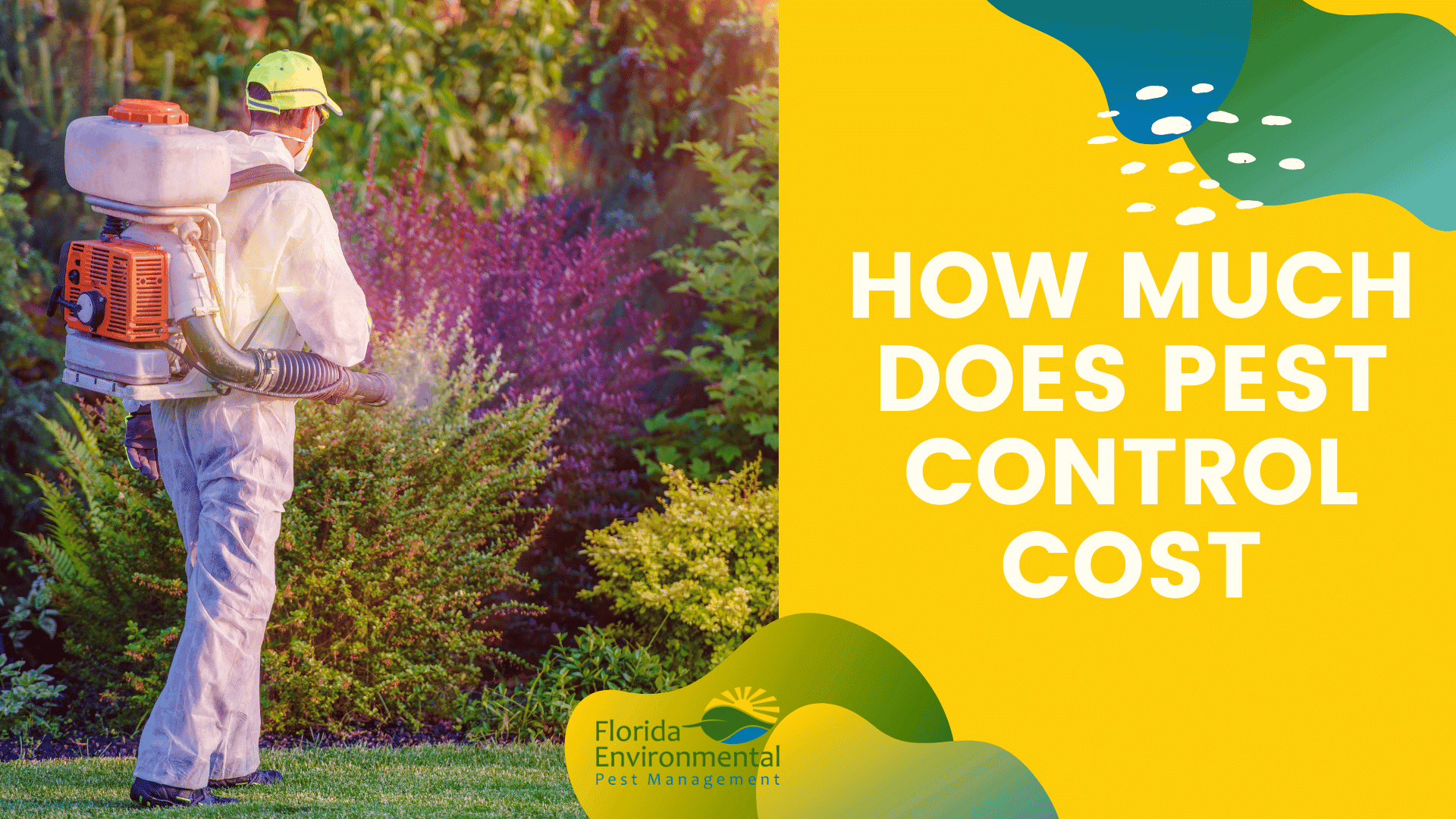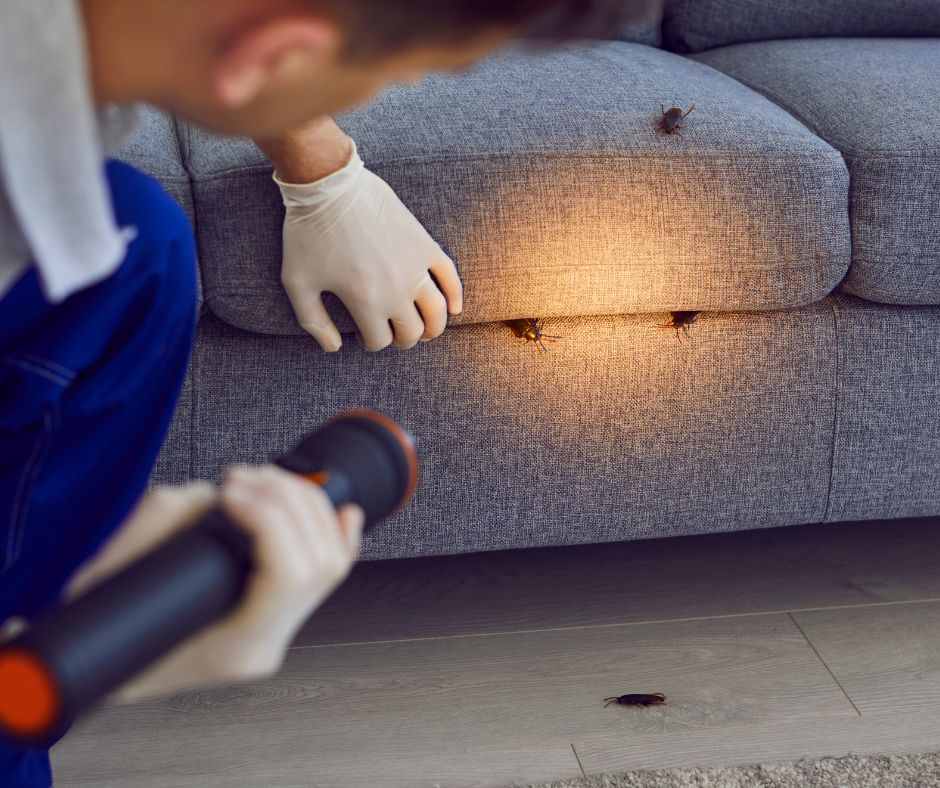Pest Control Services: Keeping Your Home Safe from Invasive Insects
Discover the Significance of Pest Control in Keeping a Healthy Environment and Therapy Techniques

The Role of Bugs in Ecosystems
Bugs, often watched exclusively as nuisances, play a diverse role in environments that is vital for keeping environmental equilibrium. They contribute significantly to different ecological procedures, including pollination, nutrition cycling, and bug control. For instance, several insect varieties, such as butterflies and , are important pollinators for a broad variety of plants, which in turn sustains biodiversity and food manufacturing.
In addition, bugs act as prey for many killers, developing an essential link in food internet. This interdependence makes sure the survival of numerous species and assists manage populations within ecosystems (Termite treatment Port Charlotte). Moreover, decomposer insects, such as particular beetles and fungi, are critical in breaking down raw material, thus enhancing dirt and assisting in vitamins and mineral recycling.
Conversely, while bugs can be beneficial, their overpopulation or invasion into non-native atmospheres may interfere with these environmental features. This complexity highlights the value of recognizing parasite characteristics, as reliable pest management approaches should take into consideration both their environmental functions and prospective influences on human tasks. Stabilizing pest visibility while minimizing injury is essential for preserving the integrity of environments and making sure agricultural efficiency.
Wellness Threats Linked With Parasites
The existence of bugs in various settings prolongs past their eco-friendly duties, as they also pose significant health and wellness risks to humans and animals. Many bugs, including rats, pests, and parasites, are providers of illness that can have severe health and wellness ramifications. Rodents are recognized to transmit hantavirus and leptospirosis, both of which can lead to serious breathing and kidney issues, respectively.
Pests such as mosquitoes and ticks are well known for spreading vector-borne illness like jungle fever, dengue high temperature, and Lyme disease. These health problems can result in high morbidity and death prices, particularly in vulnerable populations. In addition, insects like roaches and bedbugs can intensify allergic reactions and bronchial asthma, contributing to respiratory system issues in individuals, particularly those with pre-existing conditions.
In addition, the presence of parasites can result in mental anxiety and discomfort, affecting total well-being. Contamination of food and surface areas by parasite droppings and remains can lead to foodborne diseases, highlighting the value of keeping hygienic conditions. Comprehending the wellness dangers linked with parasites is critical in identifying the need of reliable bug monitoring techniques to protect human and animal health and wellness.
Benefits of Effective Insect Control
Efficient bug control is necessary for keeping a secure and healthy atmosphere, as it constantly alleviates the many dangers connected with bug infestations. One of the primary advantages of reliable pest management is the reduction of health hazards. Pests such as rodents, insects, and roaches are vectors for diseases that can influence both people and pet dogs. By regulating these populaces, the likelihood of illness transmission is significantly decreased.
In addition, efficient bug control safeguards property and frameworks from damages. Lots of bugs, like termites and woodworker ants, can trigger substantial structural damages that might call for pricey repair services. By proactively managing these organizations, problems and house owners can protect their financial investments.
An additional considerable benefit is the renovation of general lifestyle. A pest-free environment adds to mental well-being and lowers tension related to infestations. Reliable pest control promotes a more secure environment for animals and youngsters, making certain that homes continue to be sanctuaries complimentary from dangerous chemicals and disease-causing microorganisms.
Usual Parasite Control Techniques

In the world of bug monitoring, various methods are employed to battle invasions effectively. These strategies can be extensively categorized right into three major methods: social, mechanical, and chemical controls.
Cultural control entails customizing practices to lower insect survival, establishment, and recreation. This may consist of crop turning, correct cleanliness, and environment control, which jointly create an atmosphere much less conducive to pest expansion.
Mechanical control employs physical techniques to get rid of parasites (Termite treatment Port Charlotte). Strategies such as barriers, traps, and vacuum cleaners are typically made use of to straight get rid of pests from an area. This technique is especially efficient for handling rodents and bugs without making use of unsafe chemicals
Chemical control involves the application of chemicals to take care of pests. These materials can be classified right into pesticides, herbicides, and fungicides, each targeting specific kinds of pests. It is crucial to use these chemicals judiciously, sticking to security guidelines and policies to minimize potential injury to non-target types and the atmosphere.
Each insect control method has its restrictions and advantages, and frequently, an incorporated strategy incorporating numerous techniques yields the very best lead to maintaining a pest-free environment.
Lasting Bug Administration Practices
Lasting insect management techniques include a range of strategies designed to reduce environmental influence while successfully exterminator pest controlling pest populaces. These methods prioritize using eco-friendly techniques over chemical pesticides, thereby reducing the threat of injury to non-target types, including beneficial pests, wild animals, and humans.
Integrated Pest Monitoring (IPM) is a foundation of sustainable techniques, integrating organic, cultural, mechanical, and chemical tactics to handle pests. Organic control entails introducing all-natural predators or bloodsuckers to reduce pest populations. Social practices, such as crop turning and polyculture, disrupt pest life cycles and boost community durability.
Mechanical approaches, such as barriers or traps, can successfully protect against pest access without chemical intervention. Furthermore, preserving healthy and balanced ecosystems through proper soil management, plant health and wellness, and biodiversity can naturally alleviate bug concerns.
Education and learning and recognition are vital elements, equipping areas and people to recognize parasite threats early and implement safety nets. Termite treatment Port pest guys Charlotte. By fostering an all natural strategy that stabilizes bug control with eco-friendly stability, sustainable insect administration practices not only shield structures and crops but also add to a much healthier setting for future generations
Final Thought

Recognizing the health and wellness dangers associated with parasites is critical in identifying the necessity of reliable official source bug management approaches to secure human and animal health.
Efficient insect control is essential for preserving a healthy and risk-free setting, as it constantly reduces the countless dangers associated with bug infestations.Integrated Parasite Administration (IPM) is a keystone of sustainable techniques, combining organic, cultural, mechanical, and chemical strategies to manage bugs. By recognizing the function of parasites, recognizing connected health dangers, and employing varied therapy techniques, a lasting strategy to pest management can be attained. Integrated Bug Monitoring (IPM) emphasizes an alternative technique that alleviates harm to helpful organisms while successfully regulating pest populations.